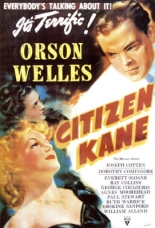 Citizen Kane - The Movie
Citizen Kane - The Movie
|
|
In Citizen Kane, considered by many to be the most
innovative Hollywood movie of all time, and often assumed to be a
veiled portrayal of the life of William Randolph Hearst, the
protagonist Charles Foster Kane is dying. Yet after a life of
Croesan riches, none of anything his enormous wealth
and fortune have afforded him has been enough. All he wants is his
childhood toy, his sled, his
"Rosebud".
Where we've got it all wrong, where we approach quality of life
ass backwards is we go into life to
achieve quality of life, to attain
quality of life. We literally go into life to make it
ie to make quality of life. If only we do the right thing, if only
we do something that makes us happy, that's when we'll
have quality of life. If only we get the right job, if only we make
enough
money,
that's when we'll have quality of life. If only we
meet the right person, if only we find our soul mate,
that's when we'll have quality of life. We
know it's out there. We just have to make
it and then we'll have it. In this regard, we're
irrepressible (if not naïve) optimists. "With all this
manure, there must be a pony in here somewhere!". But there
isn't. And there never was to begin with. "With all this manure,
there must be a pony in here somewhere!" pertinently enunciates the
domain of hope. Hope is really, if you examine it closely,
hope-less. Built in to hope is always the roots of
hopelessness, frustration, and failure. To hope is
eloquent testimony to hopelessness. "The hand" implies
both the front of the hand and the back
of the hand.
|

